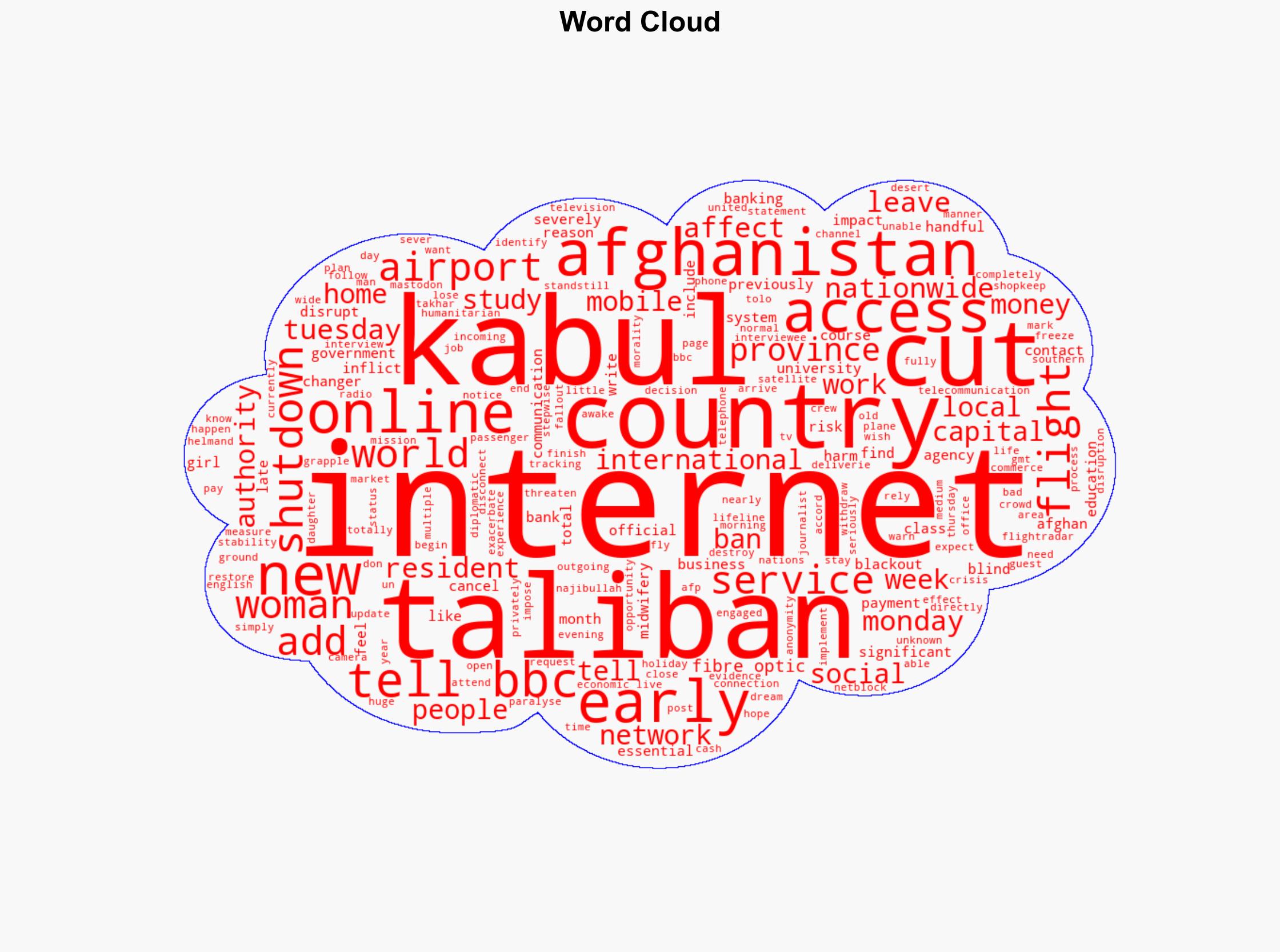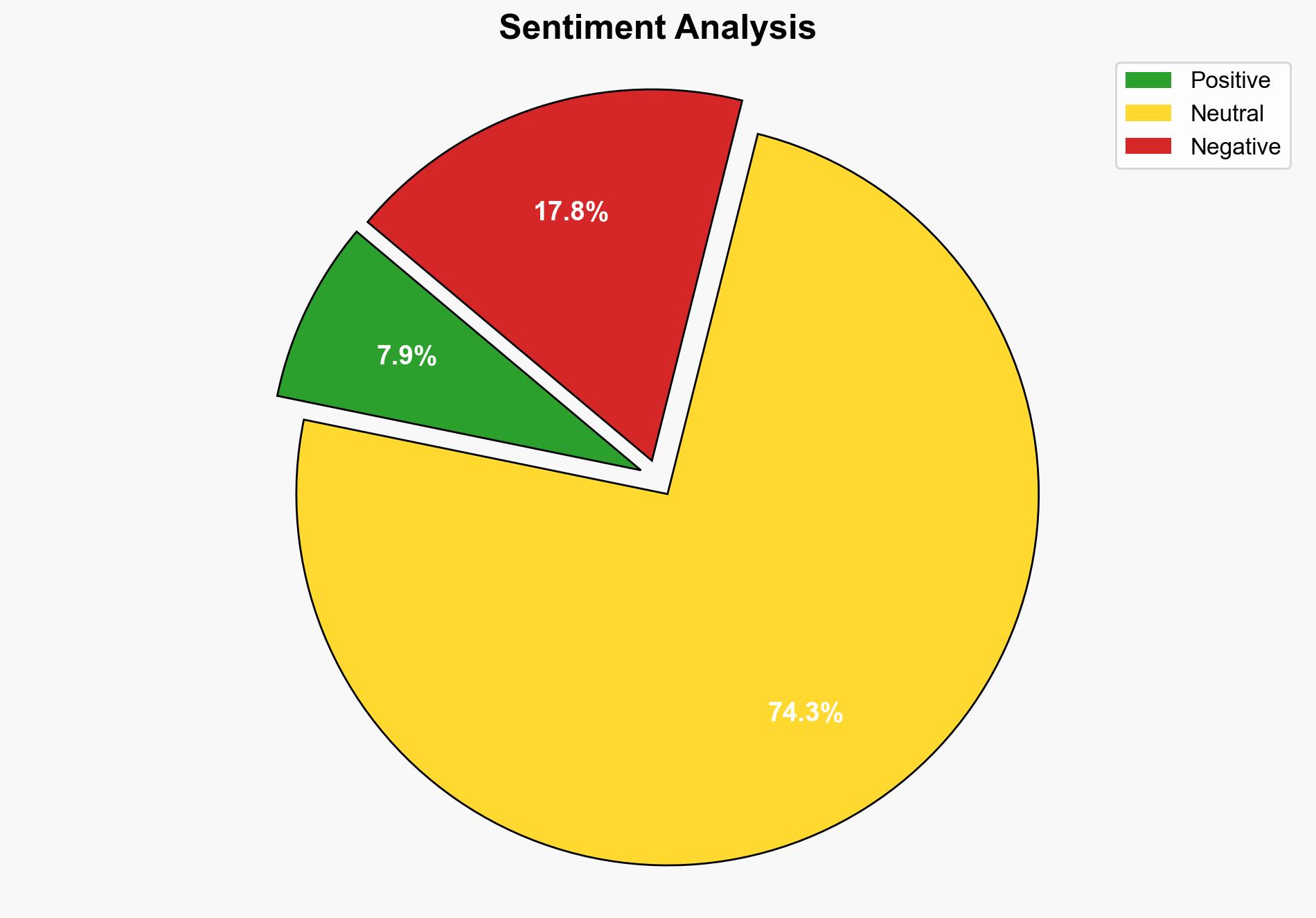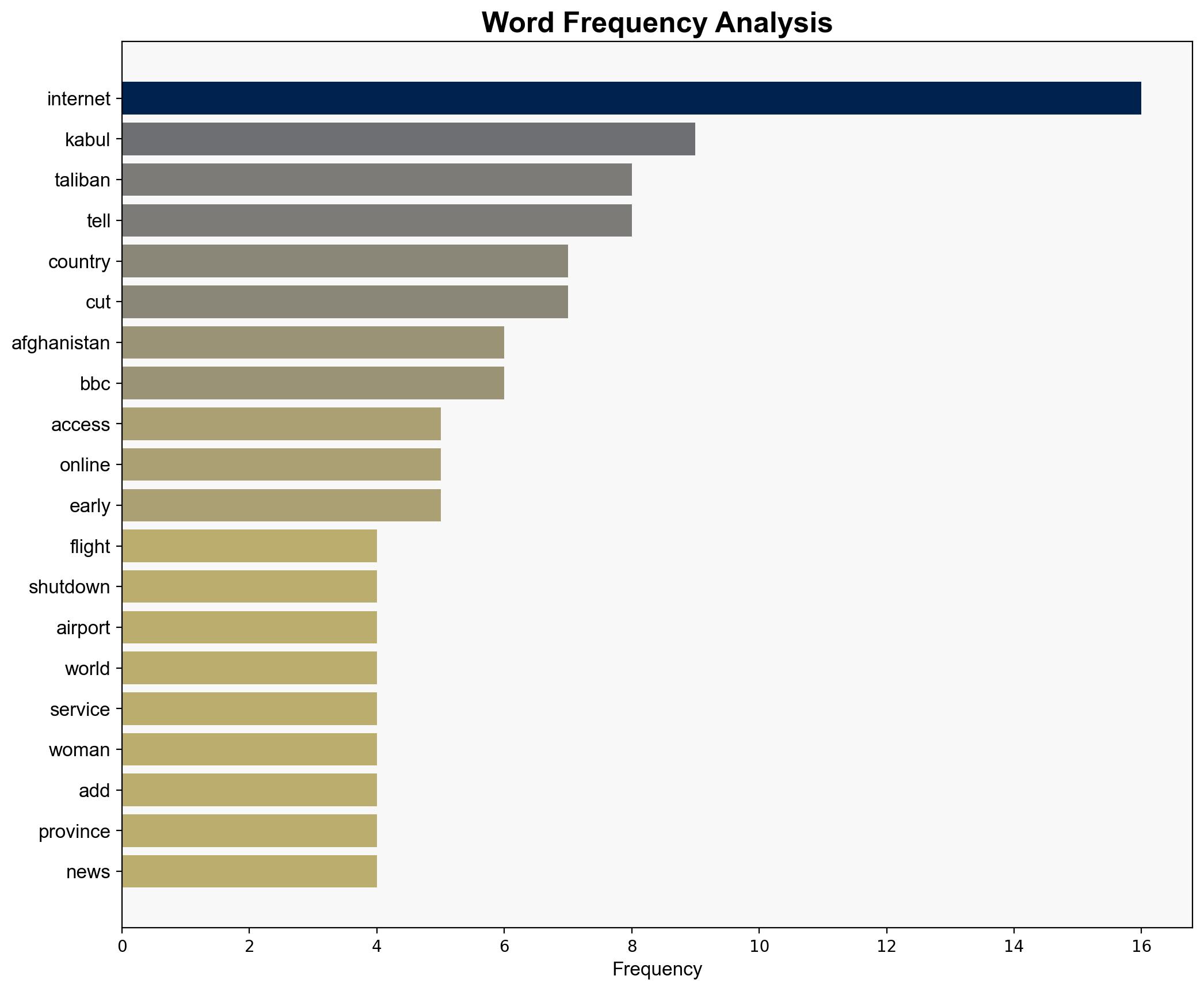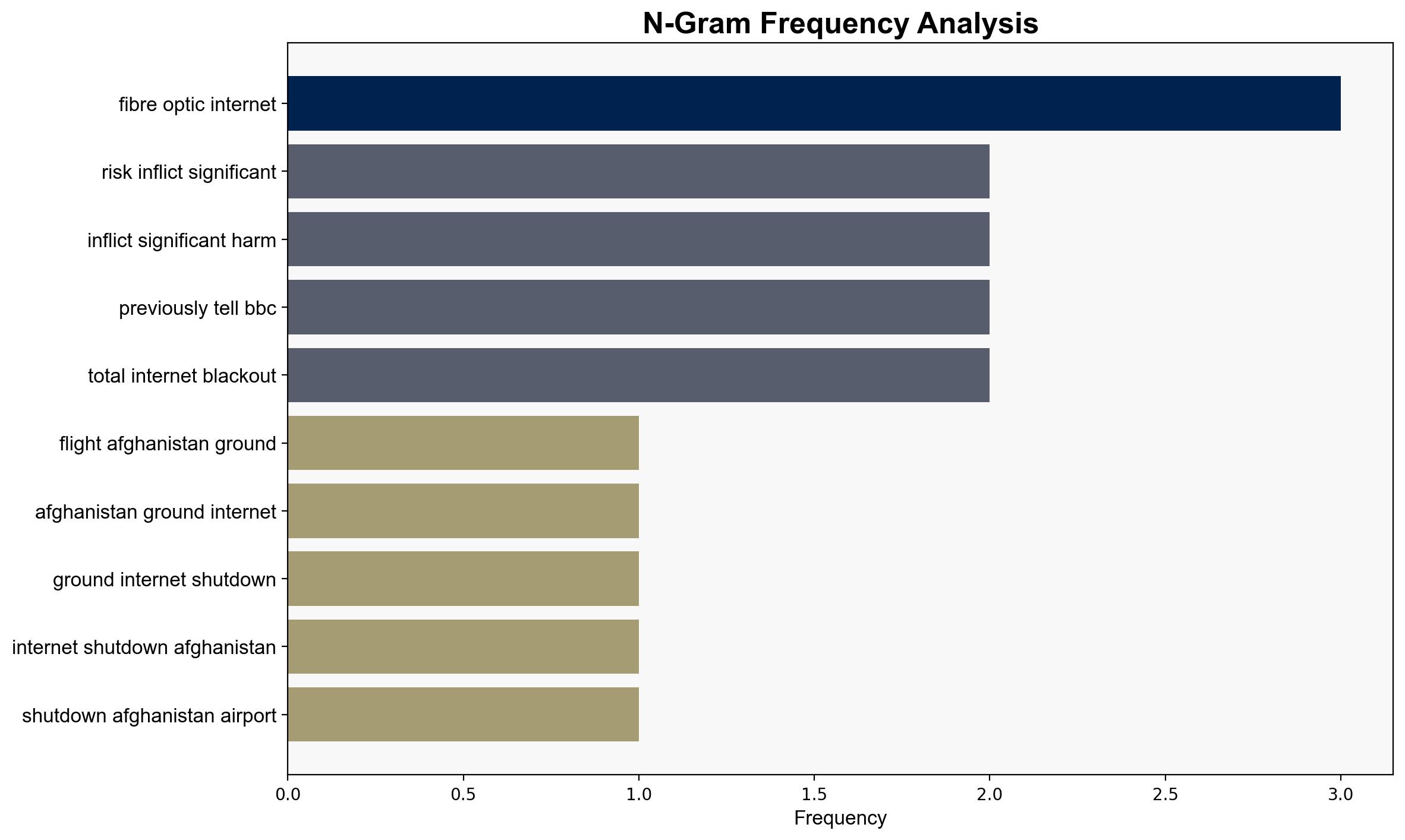Afghanistan telecom blackout as Taliban shuts off internet – BBC News
Published on: 2025-09-29
Intelligence Report: Afghanistan telecom blackout as Taliban shuts off internet – BBC News
1. BLUF (Bottom Line Up Front)
The most supported hypothesis is that the Taliban’s internet shutdown is a strategic move to consolidate control and suppress dissent, with a moderate confidence level. The recommended action is to engage international diplomatic channels to pressure the Taliban for restoration of services, while preparing for potential humanitarian aid interventions.
2. Competing Hypotheses
1. **Control and Suppression Hypothesis**: The Taliban has shut down internet services to consolidate power, suppress dissent, and control information flow within Afghanistan. This move is consistent with previous actions to limit freedoms and enforce strict governance.
2. **Security and Morality Hypothesis**: The shutdown is a response to perceived security threats or moral concerns, potentially linked to external influences or internal insurgencies. The Taliban may view internet access as a conduit for undesirable foreign influence or as a tool for insurgent communication.
Using ACH 2.0, the Control and Suppression Hypothesis is better supported by the evidence of previous restrictive measures and the timing of the shutdown aligning with other control tactics. The Security and Morality Hypothesis lacks direct evidence of specific threats necessitating such a broad shutdown.
3. Key Assumptions and Red Flags
– **Assumptions**: The Taliban’s actions are primarily driven by internal control motives. The international community’s response will significantly influence Taliban decisions.
– **Red Flags**: Lack of clear communication from the Taliban regarding the shutdown’s rationale. Potential bias in interpreting actions solely through a control lens without considering security dynamics.
– **Blind Spots**: Limited visibility into internal Taliban decision-making processes and potential external pressures influencing their actions.
4. Implications and Strategic Risks
– **Economic Impact**: The shutdown disrupts banking, commerce, and essential services, exacerbating Afghanistan’s economic instability.
– **Humanitarian Concerns**: Communication barriers hinder humanitarian aid efforts and exacerbate the existing crisis.
– **Geopolitical Dynamics**: The shutdown may strain Taliban relations with international entities and neighboring countries.
– **Psychological Effects**: Prolonged isolation could increase public unrest and diminish trust in governance.
5. Recommendations and Outlook
- Engage with international organizations to apply diplomatic pressure for service restoration.
- Prepare contingency plans for humanitarian aid delivery in the absence of digital communication.
- Monitor for signs of internal dissent or external influence that could alter the Taliban’s stance.
- Scenario Projections:
- **Best Case**: Restoration of services following diplomatic engagement, stabilizing economic and humanitarian conditions.
- **Worst Case**: Prolonged shutdown leading to severe economic collapse and humanitarian crisis.
- **Most Likely**: Partial restoration with continued restrictions, maintaining Taliban control while mitigating international backlash.
6. Key Individuals and Entities
– Najibullah (shopkeeper in Kabul)
– Residents and business owners in Kabul and other affected provinces
– United Nations Mission in Afghanistan
7. Thematic Tags
national security threats, cybersecurity, counter-terrorism, regional focus




